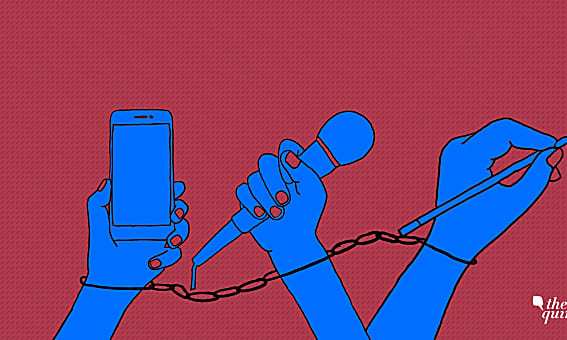
India slipped two places and ranked at 140 among 180 countries in the World Press Freedom Index released by Reporters Without Borders on Thursday, 18 April.
At least six journalists were killed in 2018, the report said, adding that “threats, insults and attacks” are not part of occupational hazard for journalists in the region.
Norway is ranked first for the third consecutive year and Turkmenistan replaced North Korea in last place. Pakistan, which was one place below India in 2018, has slipped to 142 place in 2019. China, which ranked 176 in 2018 is now at 177 place.
Pointing that critics of Hindu nationalism are branded as “anti-Indian”, the report stressed on the dangers faced non-English media journalists, especially in rural areas.
The World Press Freedom Index also said that there has been increased attacks on journalists by supporters of Prime Minister Narendra Modi, in the run-up to general elections and touched upon the coordinated hate campaign waged against journalists on social media.
Also Read: Press Freedom Not Above National Security: Arun Jaitley on Rafale
The report also pointed that the coverage of “sensitive” regions like Kashmir remained difficult, especially for foreign reporters.
Criminal prosecutions, the report says, is often used to gag journalists critical of the authorities, including the invocation of Section 124A, under which “sedition” is punishable by life imprisonment.